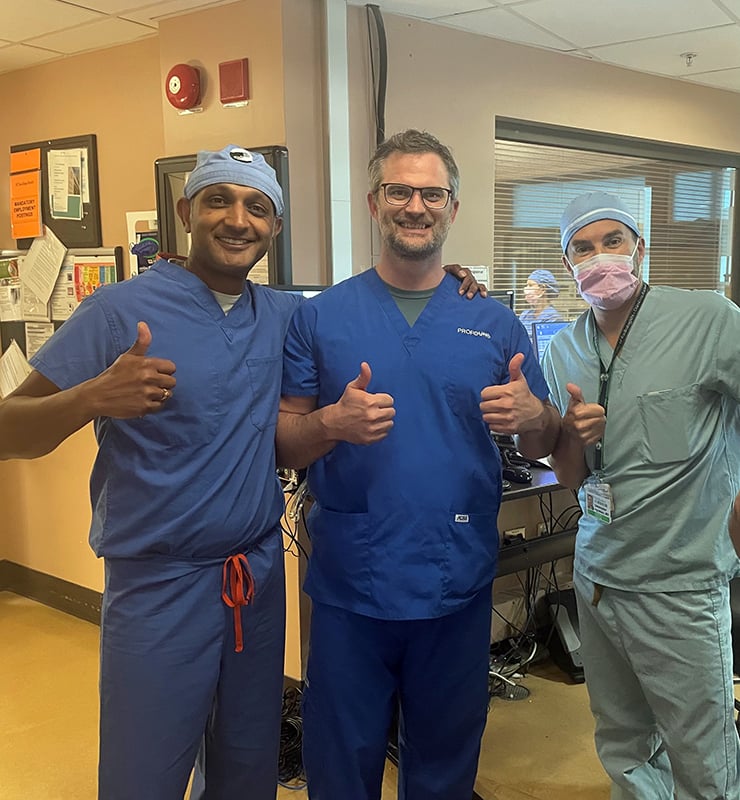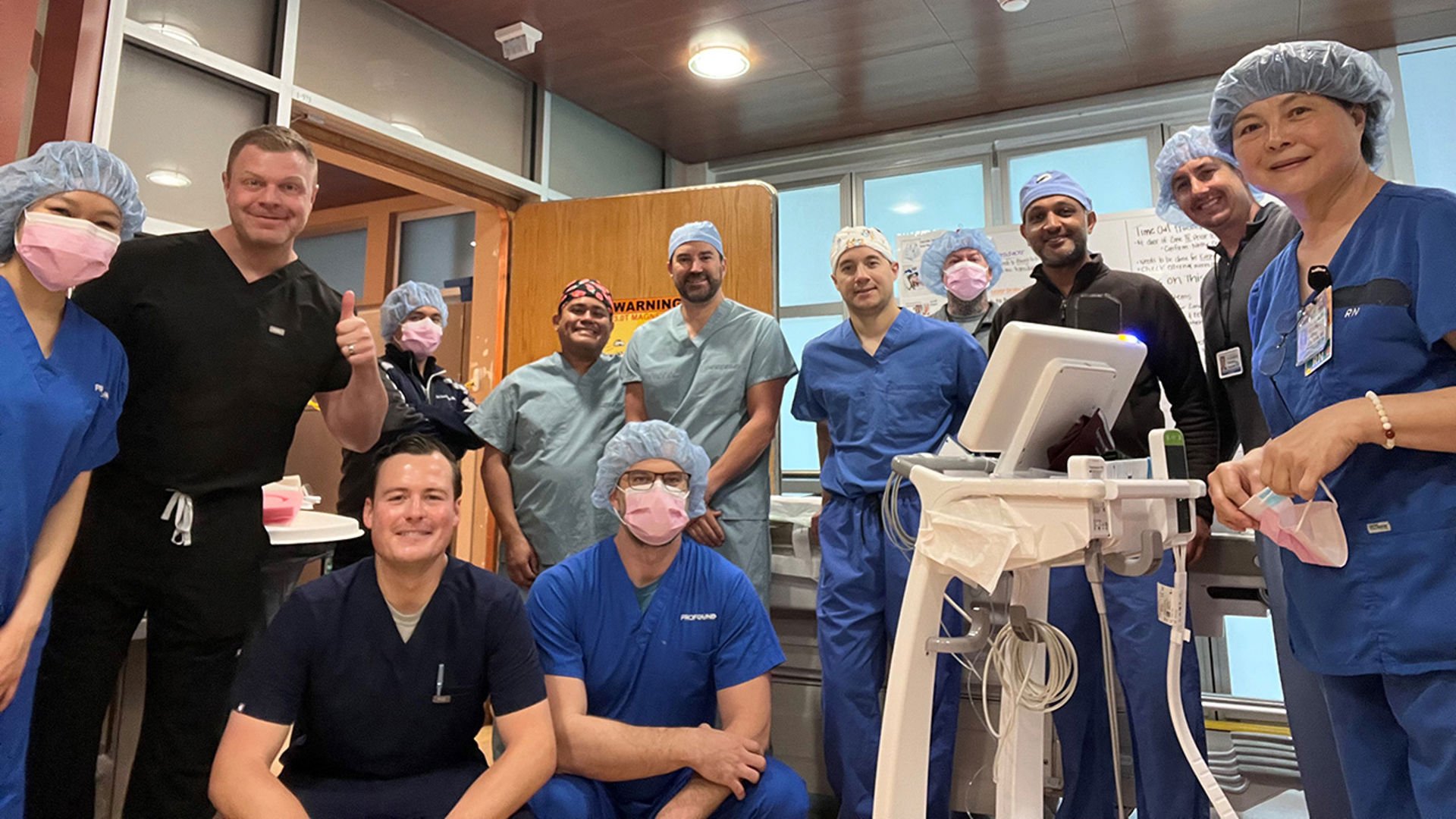
Patient Mark Nicholson enjoying his life post procedure. Photo courtesy of Mark Nicholson
UC San Diego Health is leading the region in offering a novel treatment for prostate cancer called transurethral ultrasound ablation or TULSA. The MRI-guided procedure uses a urethral probe to precisely deliver ultrasound energy that destroys cancerous tissue and allows for safe preservation of non-cancerous structures that have important functions in urinary and sexual health.
For patients like Mark Nicholson, age 66, the new treatment approach provided a welcome alternative to ongoing monitoring, radiation or full prostate removal. Nicholson was diagnosed with prostate cancer in July 2023, following a routine prostate-specific antigen (PSA) blood test as part of his annual wellness exam.
He was referred to Aditya Bagrodia, MD, urologic oncologist at UC San Diego Health and professor of urology at University of California San Diego School of Medicine. Nicholson underwent an MRI-ultrasound fusion biopsy, which indicated he had an intermediate-risk form of prostate cancer. At that time, Bagrodia explained his options included ongoing monitoring, robotic removal of his prostate, radiation therapy, or transurethral ablation treatment.
 From left: Aditya Bagrodia, MD, Chris Ingraham, MD, and Nicholas Sisco, PhD. Photo credit: UC San Diego Health
From left: Aditya Bagrodia, MD, Chris Ingraham, MD, and Nicholas Sisco, PhD. Photo credit: UC San Diego Health
"Not treating the cancer didn’t sit well with me as I’m a very pro-treatment person. But I also have several friends that have had their prostate removed and that’s a big procedure that creates big changes in a man’s self-image," said Nicholson. "When Dr. Bagrodia suggested the new procedure, I Iiked that option very much."
The incision-free procedure can be done in an outpatient setting with most patients going home the same day. Recovery time is minimal, and the procedure is designed to preserve normal sexual, urinary and bowel function.
"We are seeing remarkable patient outcomes with this new technology," said Bagrodia. "In carefully selected patients, having a minimally invasive option that minimizes impact on sexual function and urinary continence can be truly life changing."
The ultrasound ablation procedure is performed inside an MRI suite with a multidisciplinary team of experts, including teams from urology, interventional radiology, nursing and anesthesiology working together to personalize treatment delivery to exact patient needs. The approach uses real-time imaging to customize the delivery of heat to destroy only diseased tissue while simultaneously protecting healthy surrounding tissue.
“We are seeing remarkable patient outcomes with this new technology. In carefully selected patients, having a minimally invasive option that minimizes impact on sexual function and urinary continence can be truly life changing.”
— Aditya Bagrodia, MD, urologic oncologist, UC San Diego Health
"This procedure is leading-edge in bringing together a cross functional team of specialists leveraging the latest in surgical and imaging technology to limit the physical impact while on the patient while delivering positive outcomes," said Bagrodia. "Our unique combination of expertise, advanced technology, and a patient-centered approach really come together to deliver advanced treatments that improve quality of life for our patients."
Nicholson reported spending one day getting pampered on the couch at home and a week staying close to home due to his post-treatment catheter. He is now fully recovered and in surveillance mode, which involves quarterly blood tests and an annual MRI.

The collaborative UC San Diego prostate cancer care team. Photo credit: UC San Diego Health
The TULSA procedure is generally recommended for patients with intermediate risk of prostate cancer spread who have focal lesions that are visible on an MRI scan. In addition, the prostate needs to be free from calcifications that can impact the effectiveness of ultrasound.
"We are diligent in identifying patients at UC San Diego Health who are strong candidates for the procedure and will benefit the most from the treatment," said Bagrodia.
The American Cancer Society recommends annual prostate cancer screening beginning at age 50 for men with average risk and 40 to 45 for men with more risk factors.
"My quality of life is completely unaffected. It is a wonderful procedure that left me with a fully working prostate," said Nicholson. "I feel incredibly grateful to be alive in a time when this is available as a treatment option."

Aditya Bagrodia, MD, FACS
- Urologic Oncologist
- Professor of Urology
- Disease Team Co-Leader, Genitourinary Cancer


